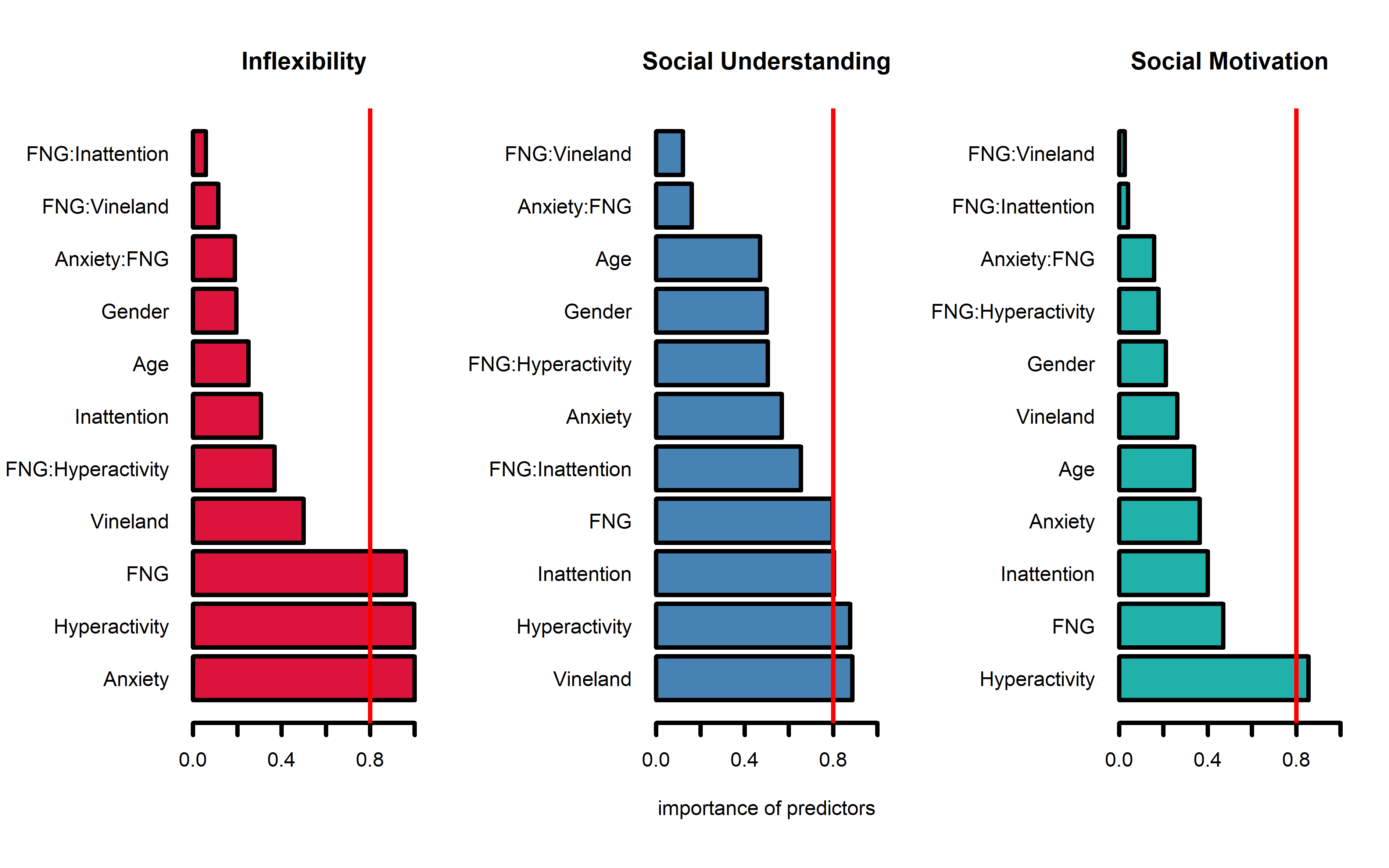Around 1% of the global population has intellectual disability (ID, also known as learning disability), meaning lifelong difficulties with cognitive functions. With recent advances in genomic technologies, it is possible to find a specific cause (genetic diagnosis) for the majority of people with severe ID. But whether and how genetic diagnosis is relevant to each person’s social and emotional characteristics remains uncertain.
This study asked whether genetic diagnoses influence aspects of the autism spectrum amongst young people with ID. We explored three dimensions which contribute to autism: flexibility, social understanding, and social motivation. We found that the overall likelihood of autistic characteristics was unaffected by genetic diagnosis. Social understanding and social motivation were not strongly linked to genetic diagnosis, even when other background factors were taken into account. These results emphasise the complexity of influences on each person’s social and emotional development, with specific genetic diagnosis having limited influence in the context of many other factors.
However, we did find that young people with genetic diagnoses affecting DNA transcription (chromatinopathies) are more likely to show inflexible behaviours when compared to young people with other genetic diagnoses. Looking more closely, we found that inflexibility and hyperactivity often occur together in people with chromatinopathy diagnoses, suggesting a specific developmental pathway toward these co-occurring features. In future studies we will explore aspects of this pathway, which may lead to new ways of understanding and supporting individuals with ID due to chromatinopathy gene variants.
Brkić D, Ng-Cordell E, O’Brien S, Scerif G, Astle D, Baker K. Gene functional networks and autism spectrum characteristics in young people with intellectual disability: a dimensional phenotyping study. Mol Autism. 2020 Dec 11;11(1):98.

 MRC Cognition and Brain Sciences Unit
MRC Cognition and Brain Sciences Unit


